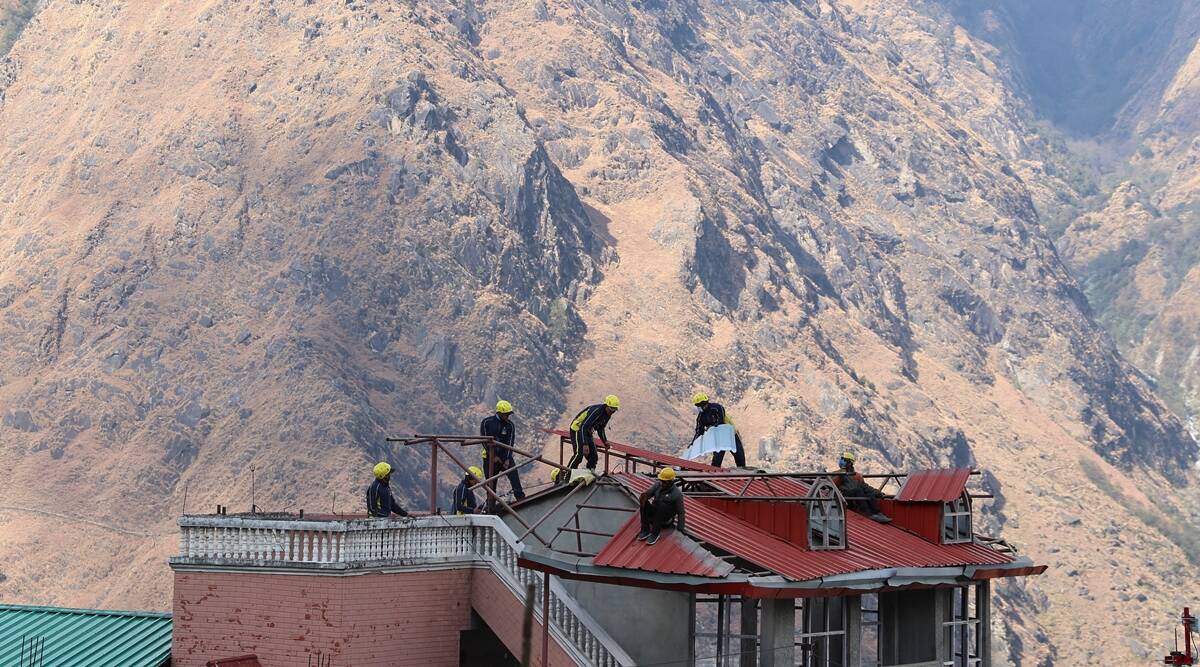Joshimath’s escalating crisis: affected families would receive Rs 5,000 per month for rent and Rs 450 per person per day for food.

On Friday, a Cabinet meeting chaired by Chief Minister Pushkar Singh Dhami approved increasing the rent for disaster-affected Joshimath residents from Rs 4,000 per month to Rs 5,000 per month, and providing actual expenses or Rs 950 per room per day, whichever is less, for accommodation in hotels and residential units as relief camps.
S S Sandhu, the chief secretary of Uttarakhand, and Ranjit Sinha, the disaster management secretary, informed the Joshimath landowners of the decisions made during the Cabinet meeting held to discuss issues related to the subsidence of the land in Joshimath by stating that they will receive Rs 1.50 lakh until the permanent occupation and rehabilitation policy is determined. This comprises a Rs 1 lakh advance payment (which will be modified) and Rs 50,000 for transportation of goods and pressing requirements.
During the cabinet meeting, preliminary consent was granted for the construction of prefabricated structures on sites selected by the district administration in Koti Farm, Pipalkoti, Gochar, Gaukh Selang village, and Dhak village, following a regional survey. The Cabinet also instructed that after performing a survey among the disaster-affected families of Joshimath, a decision will be made about the provision of housing or package funding.
In addition, if the District Magistrate of Chamoli reports that there is a need to increase the rent further, the Chief Minister is authorised to make a decision in this regard.
During the duration of the relief camp, it is envisaged to offer Rs 450 per day per individual for food. If a person is unwilling to consume meals in the aid camp, they would receive Rs 450 per day for food. In accordance with SDRF regulations, Rs 15,000 would be provided for the replacement of animals. In addition, Rs 80 per day will be made available for the fodder of large animals and Rs 45 per day will be made available for the fodder of small animals.
After performing a survey of damage assessment through a district-level committee of land and building owners impacted by landslides, the Cabinet made a decision about support for their land and built structures. The package had to be prepared within one week and sent to the Center, per the instructions.
In light of the Joshimath disaster, it is suggested to spend state government funds on a variety of short- and medium-term projects until a relief package from the federal government arrives.
It has also been agreed that two adults from households whose means of subsistence have been impacted by the disaster would receive remuneration under MNREGA. Free services will be supplied according to the pricing. Beginning in November of last year, the Cabinet also resolved to waive the power and water bills of disaster-affected families in Joshimath for the next six months.
Regarding the postponement of the collection of bank debts, instructions were issued to postpone the recovery of loans from cooperative banks with immediate effect and also from the level of other commercial banks.



